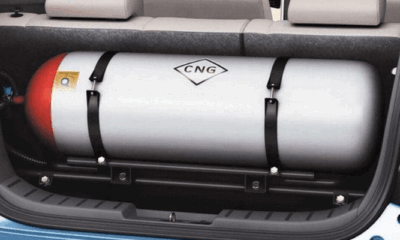Petrol scarcity in the northern part of the country could continue until the gubernatorial elections, oil marketers declared on Tuesday.
According to oil marketers, long queues of motorists at the few filling stations that have petrol have led to an increase in the cost of petrol to N400/litre at independent filling stations, and black market dealers are selling the product for between N450/litre to N500/litre.
Many motorists are turning to black market dealers because most filling stations are closed due to lack of products, and those that are open have long queues of frustrated fuel seekers.
The Independent Marketers Association of Nigeria reports that about 90% of their filling stations are closed, while the outlets of most major marketers are also closed or have long queues.
The scarcity of petrol in the Northern part of the country and some other states is expected to continue until next week, according to the National Vice President of the Independent Petroleum Marketers Association of Nigeria, Abubakar Maigandi.
“Most people thought that there would be crisis, so they stopped their trucks from going to lift products, but since there is no crisis so far, by next week, fuel should be available,” he said.
Maigandi added, “It will clear after the governorship elections in states on Saturday, for when we have elections every time in Nigeria people will develop fear. So that is the challenge.
“When we tell our truck drivers to go to Lagos to lift products, they refuse because they are scared of their lives. So we hope that by next week it will clear, for after the elections, things should return to normal, because there is enough product.
“This is why in areas such as Lagos and neighbouring states, they do not have this challenge we are seeing up North. There are no queues in Lagos and we are hopeful that the queues here should clear by next week.”
Also speaking, the Secretary, IPMAN, Abuja-Suleja, Mohammed Shuaibu, said tanker drivers and truck owners became apprehensive during the collation of results from the February 25, 2023 general elections.
“This affected the system and we expect the NNPC to hit the ground running immediately by ensuring that more trucks move down to the North between now and Friday, before the gubernatorial elections on Saturday.
“For when we go into such fuel scarcity situation like this, it takes time before it normalises because of the distance of trucking this product from down South to Abuja and far away North.
“There would not be movement as from Saturday and this will lead to the continuation of fuel scarcity till next week. So the reason for the heavy queues is the general elections and this might continue till the elections are over,” Shuaibu stated.

 Education4 weeks ago
Education4 weeks ago
 News3 weeks ago
News3 weeks ago
 Business3 weeks ago
Business3 weeks ago
 Technology3 weeks ago
Technology3 weeks ago
 Investment4 weeks ago
Investment4 weeks ago
 Investment3 weeks ago
Investment3 weeks ago
 Telecommunications4 weeks ago
Telecommunications4 weeks ago
 Banking Sector3 weeks ago
Banking Sector3 weeks ago




























